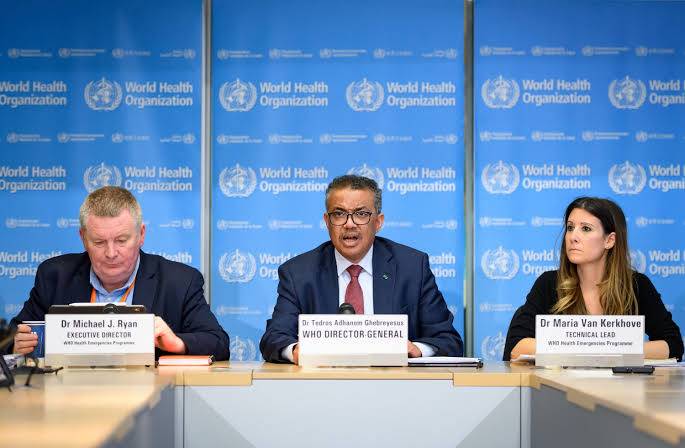178,000 Mothers, One Million Newborns Die In Africa Every Year - WHO
The World Health Organisation (WHO) of the African region has revealed that an estimated 178,000 mothers and one million newborns die in the African region every year, many from preventable causes. This staggering statistic was highlighted in a release to commemorate World Health Day, celebrated on April 7 annually.
The theme for this year's campaign is "Healthy beginnings, hopeful futures," focusing on improving maternal and newborn health and survival. Despite progress in lowering maternal mortality since 2000, the region still accounts for 70% of global maternal deaths. The WHO estimates that the region needs a 12-fold increase in the annual reduction rate to reach the Sustainable Development Goals target of fewer than 70 deaths per 100,000 live births by 2030.
New estimates by the United Nations Maternal Mortality Estimation Interagency Group show that the region has made progress, with a 40% decline in maternal mortality from 727 to 442 deaths per 100,000 live births between 2000 and 2023. However, the region is projected to have nearly 350 maternal deaths per 100,000 live births by 2030, five times higher than the SDG target.
The stillbirth and neonatal mortality rates have also declined, but sub-Saharan Africa still accounts for 47% of stillbirths and 46% of global newborn deaths. The region is projected to record a neonatal mortality rate of about twice the SDG target of at least as low as 12 deaths per 1,000 live births by 2030.
The WHO is calling on governments, donors, and communities to ramp up efforts to end preventable maternal and newborn deaths and prioritize the longer-term health and well-being of women and children. The acting WHO Regional Director for Africa, Dr. Chikwe Ihekweazu, emphasized that every dollar invested in maternal and newborn health delivers major returns: healthier families, stronger societies, and sustainable economic growth.
The key barriers to progress include inadequate financing, weak governance, health workforce shortages, and recurring shocks, such as disease outbreaks and conflicts, which disrupt maternal and child health services. In fragile and crisis-affected settings, women and children are particularly at risk.
The leading causes of maternal deaths in the region include hemorrhage, hypertensive disorders, infections, unsafe abortion, and obstructed labor, all conditions that are largely preventable or treatable with access to timely, quality care. Among newborns, preterm births, complications during childbirth, sepsis and neonatal infections, as well as congenital anomalies are the common causes of death.
The WHO is supporting countries across the region in implementing a wide range of interventions, including developing and rolling out maternal and newborn health acceleration plans and implementing antenatal and postnatal care guidelines. Other priorities include increasing access to skilled health personnel at birth and emergency obstetric care, expanding special care for small and sick newborns, and tackling the social and economic drivers of health inequities.
More than 60% of countries in the African region now report that over 80% of births are attended by skilled health personnel, a significant improvement from just 28% in 2010. However, progress varies across the region, with rural and crisis-affected areas continuing to face acute service shortage gaps.
The WHO's efforts are crucial in addressing the high rates of maternal and newborn mortality in Africa. By investing in maternal and newborn health, governments and donors can help reduce the number of preventable deaths and improve the health and well-being of women and children.
In conclusion, the WHO's report highlights the need for increased efforts to improve maternal and newborn health in Africa. By addressing the key barriers to progress and implementing effective interventions, we can work towards reducing the number of preventable deaths and improving the health and well-being of women and children.
The statistics presented in this report are a stark reminder of the need for action. The estimated 178,000 mothers and one million newborns who die every year in Africa are a tragic reminder of the importance of prioritizing maternal and newborn health. We must work together to address the root causes of these deaths and ensure that all women and children have access to quality care.
By doing so, we can create a brighter future for the people of Africa, where every birth is a celebration of life and every child has the chance to thrive. The WHO's efforts are a step in the right direction, and we must continue to support and amplify their work to ensure that we reach our goal of improving maternal and newborn health in Africa.
As we move forward, it is essential that we prioritize the needs of women and children in our efforts to improve health outcomes. This means increasing access to skilled health personnel, emergency obstetric care, and special care for small and sick newborns. It also means addressing the social and economic drivers of health inequities and working to reduce the disparities in health outcomes that exist across the region.



